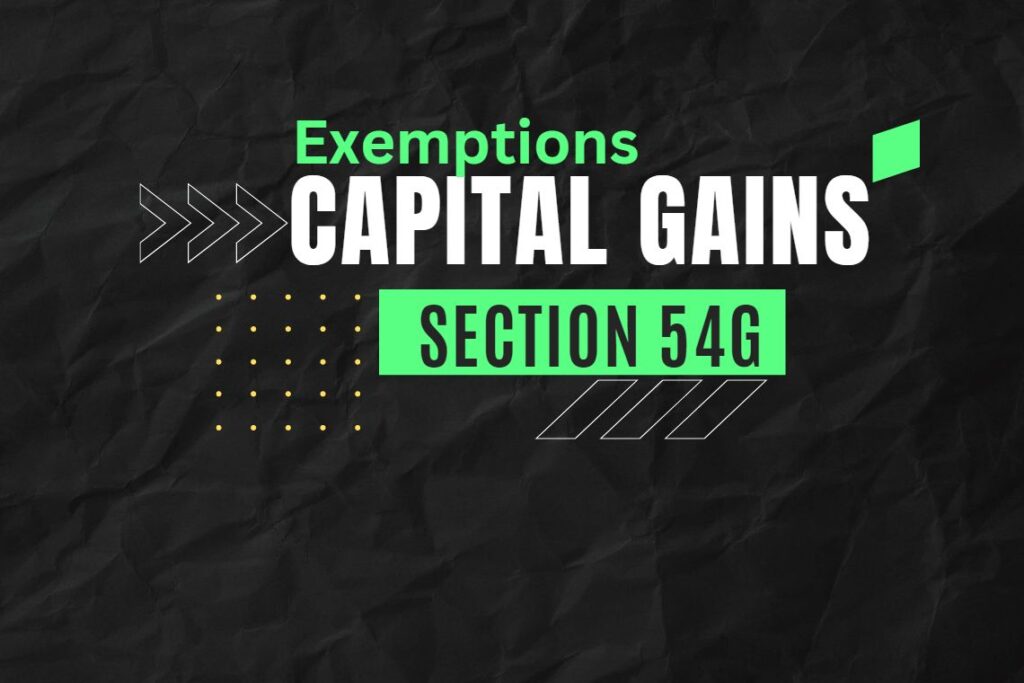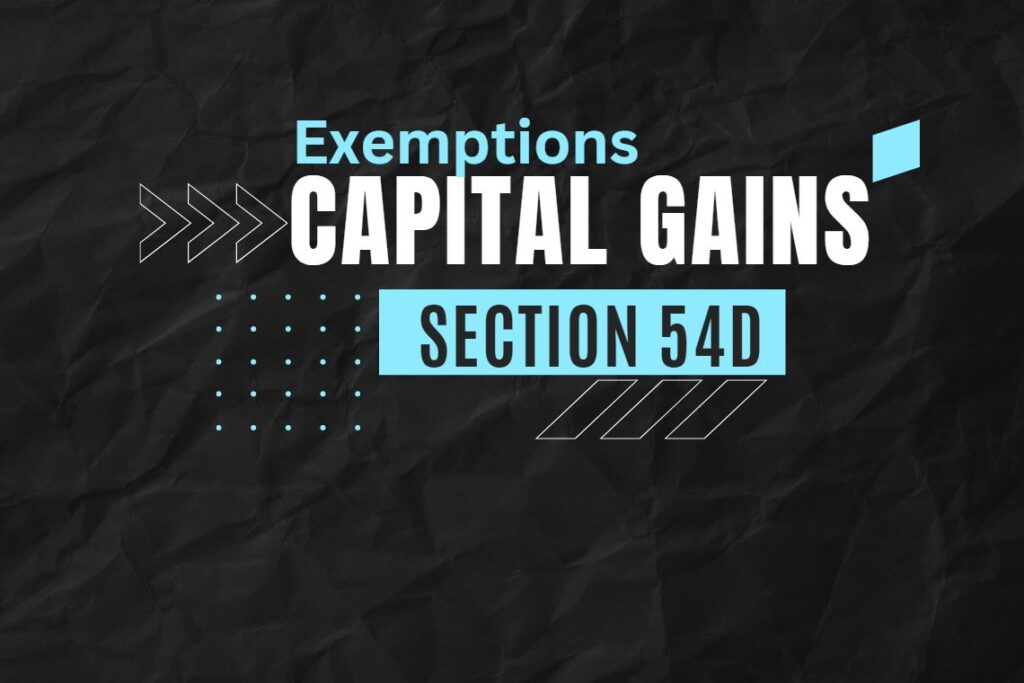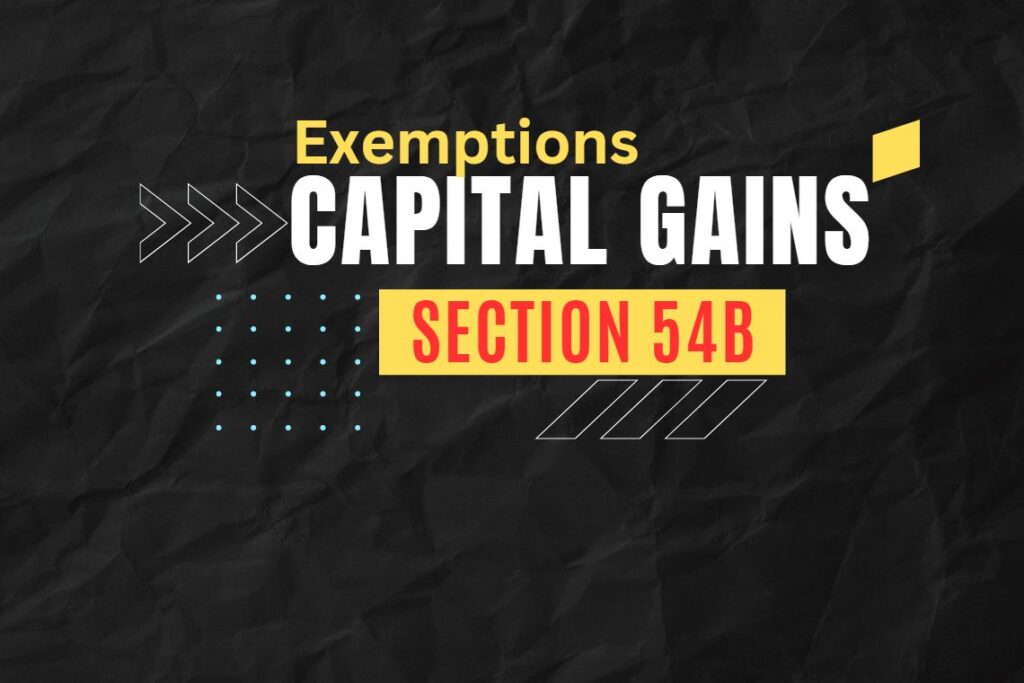(1) Conditions to be satisfied for applicability of Section 112A [Section 112A(1)]:
Notwithstanding anything contained in section 112, the tax payable by an assessee on his total income shall be determined in accordance with the provisions of section 112A(2), if the following conditions are satisfied:
(i) the total income includes any income chargeable under the head “Capital gains”;
(ii) the capital gains arise from the transfer of a long-term capital asset being:
- an equity share in a company or
- a unit of an equity oriented fund or
- a unit of a business trust;
Taxability of ULIP on Sale or Redemption:
The Finance Act, 2021 has included such ULIPs [to which exemption under section 10(10D) does not apply on account of the applicability of the ‘fourth and fifth provisos] in the definition of equity oriented fund in section 112A so as to provide these policies the same treatment as unit of equity oriented fund. Thus provisions of section 112A would also apply on sale/redemption of such ULIPs if there is any long-term capital gain on account of such ULIPs.
| Further it has been provided that such ULIP shall also satisfy the minimum requirement of ninety per cent, or sixty-five per cent., as the case may be, throughout the term of such insurance policy. |
(iii) Securities Transaction Tax has been paid as under:
(a) In the case of equity shares —
In a case where the long-term capital asset is in the nature of an equity share in a company, securities transaction tax has been paid on acquisition and transfer of such capital asset; or
(b) In the case of unit of an equity oriented fluid or a unit of a business trust
In a case where the long-term capital asset is in the nature of a unit of an equity oriented fund or a unit of a business trust, securities transaction tax has been paid on transfer of such capital asset.
(2) Tax Payable on Total Income if it includes such Long-Term Capital Gain [Section 112A(2)]:
The tax payable by the assessee on the total income referred to in section 11 2A(l) shall be the aggregate of—
(i) the amount of income-tax calculated on such long-term capital gains exceeding Rs.1,00,000 @ 10%; and
(ii) the amount of income-tax payable on the total income as reduced by the amount of long- term capital gains referred to in section 112A(1) as if the total income so reduced were the total income of the assessee.
However, in the case of an individual or a Hindu undivided family, being a resident, where the total income as reduced by such long-term capital gains is below the maximum amount which is not chargeable to income-tax, then, the long-term capital gains, for the purposes of clause (i), shall be reduced by the amount by which the total income as so reduced falls short of the maximum amount which is not chargeable to income-tax.
(3) Condition of Payment of STT Not Applicable in case of Transaction Undertaken on a Recognised Stock Exchange located in any International Financial Services Centre [Section 112A(3)]:
The condition relating to the payment of STT specified in section 11 2A( 1 )(iii) above shall not apply to a transfer undertaken on a recognised stock exchange located in any International Financial Services Centre and where the consideration for such transfer is received or receivable in foreign currency.
Similarly, the requirement of payment of STT at the time of transfer of long-term capital asset, being a unit of equity oriented fund or a unit of business trust, shall not apply if the transfer is undertaken on recognized stock exchange located in any International Financial Services Centre (IFSC) and the consideration of such transfer is received or receivable in foreign currency.
(4) The Government may issue a Notification Exempting the requirement of Payment of STT at the time of Acquisition of Equity Shares [Section 112A(4):
The Central Government may, by notification in the Official Gazette, specify the nature of acquisition in respect of which the provisions of section 112A(1)(iii)(a) above shall not apply.
Thus, section 112A(4) empowers the Central Government to specify by notification the nature of acquisitions in respect of which the requirement of payment of securities transaction tax shall not apply in the case of equity share in a company.
(5) Deduction under Chapter V1-A (Sections 80C to 80U) Not to be Allowed from such Long- Term Capital Gain [Section 112A(5)]:
Where the gross total income of an assessee includes any long-term capital gains referred to in section 1 12A(1), the deduction under Chapter V1-A shall be allowed from the gross total income as reduced by such capital gains.
In other words, deduction under Chapter VT-A (Sections 80C to 80U) shall not be allowed from such long-term capital gain.
(6) Rebate of Tax under Section 87A not to be Allowed from the Tax Payable on such Long- Term Capital Gain [Section 112A(6)]:
Where the total income of an assessee includes any long-term capital gains referred to in section 112A(1), the rebate under section 87A (of Rs. 12,500) shall be allowed from the income-tax on the total income as reduced by tax payable on such capital gains.
In other words, rebate of tax shall not be allowed from the tax payable on such long-term capital gain.
(7) Computation of Tax on Long-Term Capital Gains under Section 112 other than referred to in section 112A
The basic reason for making a distinction between short-term capital gain and long-term capital gain is that short-term capital gain, (other than short-term capital gain in case of listed equity shares and units of equity oriented mutual fund or unit of a business trust mentioned above under section 111A), is to be taxed at the normal rates of tax like any other income, whereas,—
— long-term capital gain other than referred to in section 112A,
— long-term capital gain referred to in section 112A and
— short-term capital gain mentioned under section 111A above
are to be taxed at concessional rate.
Further, although, short-term capital gain and long-term capital gain are part of the Total income, but for purpose of computation of tax on long-term capital gain, such long-term capital gain, like short-term capital gain under section 111A mentioned above, is kept separate from the gross total income due to the following reasons:
(i) deductions permissible under Chapter VIA (i.e., sections 80C to 80U) are not allowed from long-term capital gain.
(ii) rate of tax on long-term capital gain will be a concessional rate.
Hence, the following steps should be followed for calculation of tax on total income if the
total income includes—
(a) long-term capital gains other than referred to in section 112A
(b) long-term capital gains referred to in section 112A:
- Compute the gross total income without including the above long-term capital gains.
- Allow deductions permissible u/ss 80C to 80U from such gross total income.
- Calculate the income-tax at the normal rate of tax on income arrived at in step 2.
- Compute the tax at the flat prescribed rates on—
— long-term capital gains other than referred to in section 112A (it is taxable at the special rate of 20% except in few cases).
and
— long-term capital gains referred to in section 112A (it is taxable @ 10% of the amount exceeding Rs. 1,00,000).
- The aggregate of the tax computed in step 3 and step 4 shall be the tax on net income.
- Add surcharge, if applicable plus H&EC on tax so computed at the rate applicable.
Situation where Total Income includes both Short-Term Capital Gain of the nature referred to in section 111A and Long-Term Capital Gain on any Asset.
Step 1: Compute the gross total income without including short-term capital gain of the nature referred to in section 111A and long-term capital gain on any asset.
Step 2: Allow deduction permissible under sections 80C to 80U from such gross total income.
Step 3: Calculate the income-tax at the normal rate of tax on income arrived at in step 2.
Step 4: Compute the tax @ 15% on such short-term capital gain and at the prescribed rate on (i) long-term capital gain other than referred to in section 112A and (ii) long-term capital gain referred to in section 112A.
Step 5: The aggregate of the tax computed in step 3 and step 4 shall be the tax on net income.
Step 6: Add surcharge if applicable + H&EC on tax so computed at the rate applicable.
Further, when the total income of the resident individual or resident HUF, as reduced by short- term capital gain covered under section 111A and any long-term capital gain is below the maximum amount which is not eligible to tax, i.e., it is less than Rs.2,50,000 (Rs. 3,00,000 / 5,00,000 in case of an individual of age of 60 years or more or 80 years or more, as the case may be, provided he does not opt to be taxed under section 115BAC), then such short-term capital gain or the long-term capital gain or both, as the case may be, shall be reduced by the amount by which such total income (exclusive of the above said two capital gains) falls short of the exemption limit, i.e., Rs.2,50,000 (3,00,000 or 5,00,000, as the case may be) and the tax on the balance short-term capital or the long-term capital gain shall be computed @ 15% or 20% or 10%, as the case may be.
Section 111A is applicable only when the assessee holds the equity share/units of equity oriented fund or a business trust as capital asset and not as stock-in-trade. In other words, he should be an investor. If he holds shares as stock-in-trade, the profit arising for the transfer of such assets shall be ‘treated as business income. Hence, onus shall be on the assessee to establish that these shares were held as investment and not as stock-in-trade.
Rate of Tax on Long-Term Capital Gain under Section 112 (other than referred to in section 112A) in certain Cases
| (a) | In case of a non-resident (not being a company) or a foreign company: | |
| (i) from the transfer of a capital asset, being unlisted securities or shares of a company not being a company in which public are substantially interested | 10% computed without giving effect to the first and second proviso to section 48 | |
| (ii) from the transfer of a capital asset other than mentioned in (i) above | 20% | |
| Notes—
(1) First proviso relates to computation of capital gain in case of transfer of shares/debentures by non-residents. (2) Second proviso relates to indexation of cost. |
||
| (b) | Tax on long-term capital gains from listed securities (other than a unit) and Zero-Coupon Bonds | It shall be minimum of the following 2 amounts:
1. Tax @ 20% on long-term capital gains computed after indexation of cost of such listed securities (including shares), or bonds— or 2. Tax @ 10% on long-term capital gains computed without indexation |
| (c) | In case of long-term capital gain covered by sections 115AB, 115AC and 115E | 10% |











